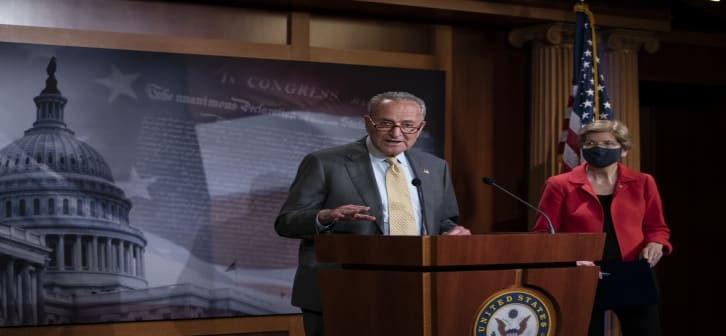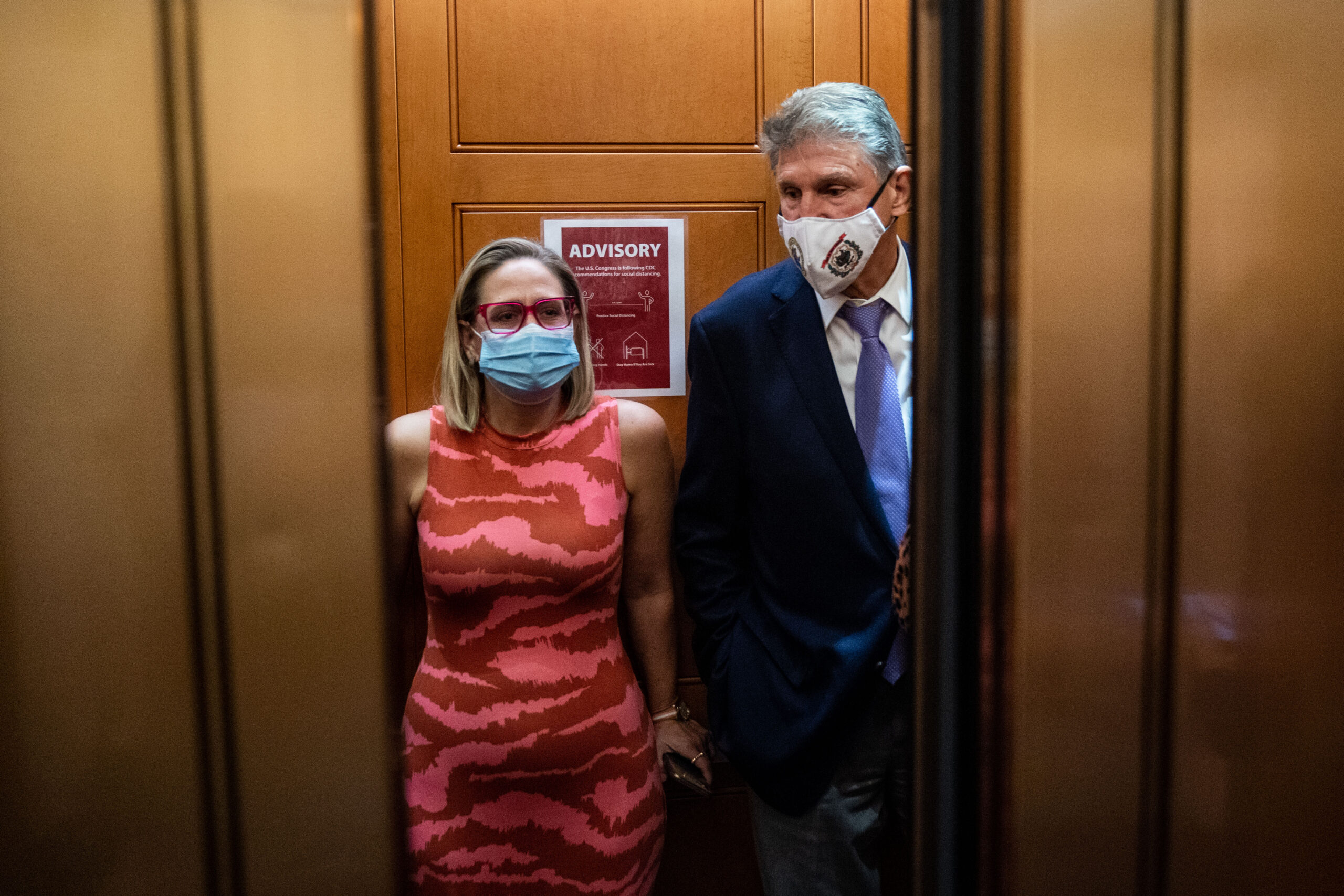Dem Senators Ask Biden to Extend Student Loan Payment Pause
Writer
Writer

- Federal student loan payments have been suspended since March 2020 due to COVID-19.
- That moratorium is scheduled to end on Feb. 1, 2022.
- Democrats are calling for the pause to be extended and for forgiveness of student debt.
With the omicron variant spreading and the end of a moratorium on federal loan payments looming, Congressional Democrats are again pushing President Biden to cancel large amounts of student loan debt.
On Wednesday, Dec. 9, Senate Majority Leader Chuck Schumer of New York, Sen. Elizabeth Warren of Massachusetts, and Rep. Ayanna Pressley of Massachusetts sent a letter to Biden asking not only that he extend the moratorium on student loan payments, but also that he cancel up to $50,000 in debt per person.
When Congress passed the CARES ACT in March 2020, federal student loans stopped accruing interest; that moratorium has been extended three times since and is slated to expire at the beginning of February 2022.
In the letter, the trio cited a report they commissioned from the Roosevelt Institute that estimates $7.12 billion per month and $85.48 billion annually will be stripped from over 18.1 million student loan borrowers if payments resume on Feb. 1 as scheduled.
The senators asked Biden for an extension of the moratorium "until the economy reaches pre-pandemic employment levels." In the letter, they add that the omicron variant brings more uncertainty about the future of the country's economy and question the ability to keep the virus under control.
According to the Bureau of Labor Statistics (BLS), unemployment peaked at 3.5% pre-pandemic in February 2020. In the organization's latest survey in November, the BLS reports that the current unemployment rate is 4.2%.
A new survey from Bankrate and BestColleges further shows how the end of the forbearance period could impact the lives of adults with federal student loans. It found that 75% of borrowers surveyed expected their finances to be negatively impacted in February when payments resume, and more than 33% said that it will be harder to pay for everyday necessities, like groceries or household bills.
Schumer, Warren, and Pressley hope a continued pause on student loan payments, interest, and collection will just be Biden's first step. Their letter calls on the president to cancel up to $50,000 of student debt per person, as well.
Biden promised cancellations up to $10,000 while on the campaign trail. However, since being sworn in, he's stated his office is researching whether this could be achieved through executive action, or if it must be passed through Congress.
The Roosevelt Institute estimates that cancellation would add $173.8 billion to the country's gross domestic product in the first year of implementation.
Schumer, Warren, and Pressley also argue that cancellation would benefit borrowers of color and low-income borrowers the most, helping to uplift essential parts of the economy. The letter cites a 2019 study from Brandeis University that reports the median Black borrower still owes 95% of their loans 20 years after starting college, while the median debt of their white counterparts has been reduced by 94%.
The Bankrate and BestColleges survey found that
This letter was sent shortly after a joint letter from over 200 organizations also called on the president to delay restarting student loan payments. Organizations that signed this letter included the Student Borrower Protection Center and American Civil Liberties Union.
Latest News
Related Stories
Featured Stories
Latest Analysis
College Accreditation Is Changing. Here’s What Students Need To Know.

11 Red States Are Suing to Block Biden's SAVE Loan Repayment Plan. Here's What Borrowers Need to Know.

Here's Where the 2024 Presidential Candidates Stand on Higher Education

College Admissions, Student Diversity, and Campus Culture 50 Years Ago












